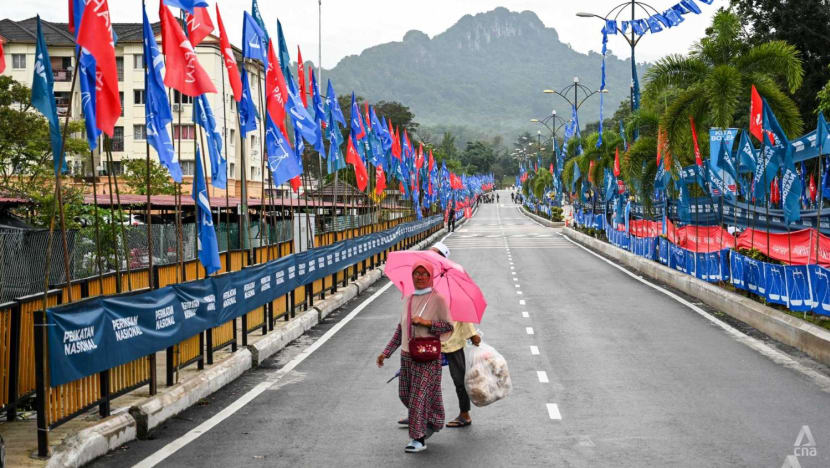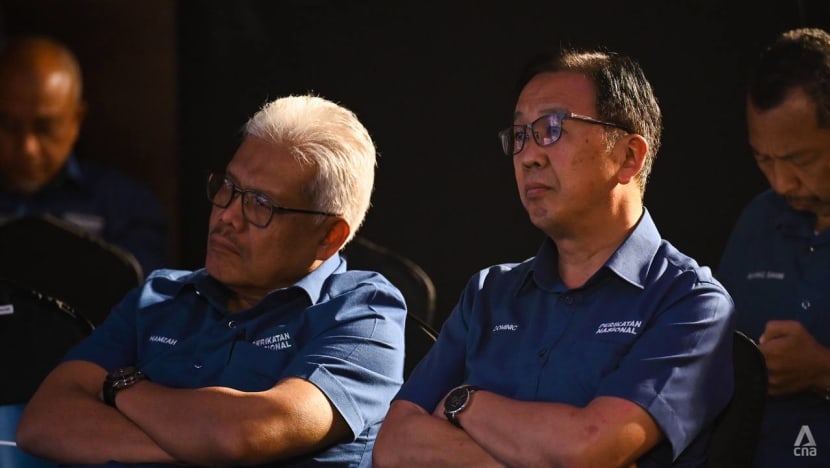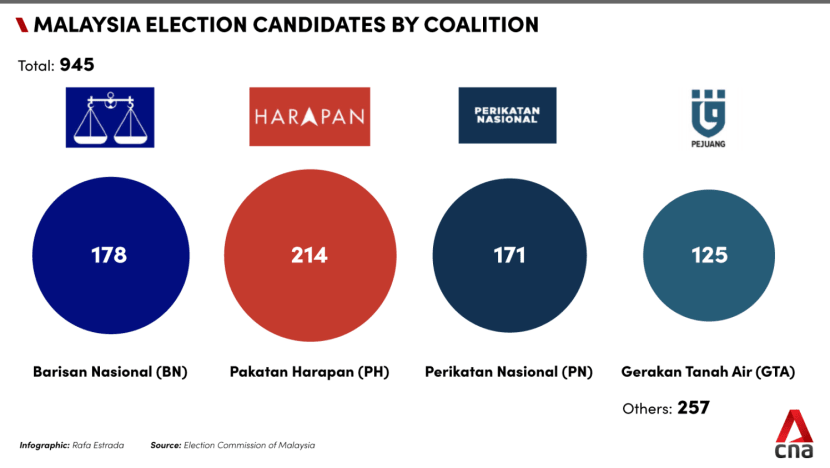Split Malay vote means minorities could play crucial role in Malaysia GE15 outcome: Experts

KUALA LUMPUR: While the Bumiputeras make up the majority of Malaysia’s population, observers believe that the votes of the minorities can make a huge difference in the outcome of the 15th General Election (GE15).
According to the latest census by Malaysia’s Department of Statistics, the ethnic Chinese and Indian population in 2021 stood at 22.8 per cent and 6.6 per cent respectively while 69.9 per cent of the population is Bumiputera.
Merdeka Center executive director Ibrahim Suffian said that the minority votes would be very important this time round since the Malay vote is split between Barisan Nasional (BN), Perikatan Nasional (PN), Pakatan Harapan (PH) and smaller parties such as Parti Pejuang Tanah Air (Pejuang).
“It is quite clear that the minority voters (who are) Chinese and Indian are generally more in favour of PH.
“Even if they don’t capture a lot of Malay votes, the support from the non-Malay community is enough to give PH a win in a lot of seats. If they don’t support PH, then the coalition’s chances are quite weak,” he told CNA.
A survey by the centre that was released on Nov 4 found that 32 per cent of Malay voters preferred BN compared to 20 per cent for PN and 13 per cent for PH, while 30 per cent were still unsure or had no preference.
The survey also found that 47 per cent of Chinese voters preferred PH compared to 5 per cent for BN and 1 per cent for PN. As for Indian voters, 51 per cent backed PH compared to 32 per cent for BN and 1 per cent for PN.
It also found that 41 per cent of Chinese and 8 per cent of Indians said they did not have any preference or were still unsure.
More than 21 million people are eligible to cast their votes during the elections on Nov 19.
Mr Ibrahim said that the non-Malay vote may well become the decider in many of the seats where no single party can win based on Malay support alone.
There are altogether 222 parliamentary seats in Malaysia.
“They become very important in mixed ethnic constituencies where the non-Malay component is anywhere between 25 to 35 per cent.
“In seats where there are more minorities, PH and DAP will do quite well, that is quite expected. But in some seats where the Malay majority isn’t so big, anywhere between 65 to 75 per cent, the minority votes can become kingmaker,” he said, noting that there were about 25 such federal seats in the country.
He said that while race is not the only factor when it comes to voting in Malaysia, it is still important in determining voting choices.
Former prime minister Mahathir Mohamad told CNA previously that most voters look at racial lines when it comes to voting.
“You have to respond to the attitude of the people. We can’t just say this is not right and put something the people do not want,” he said.
POLITICAL PARTIES SAY THEY FIGHT FOR ALL RACES
Representatives of several political parties interviewed by CNA said that they will fight for all Malaysians. However, they noted that there was no running away from the question of race.
Gerakan president Dominic Lau claimed that when selecting candidates, race and religion are secondary.
“We put up candidates who can win the seats for PN. The focus is on winnability, acceptability, and capability,” he told CNA, although he acknowledged that the different parties in PN focused on different segments of the population.
PN component parties Parti Pribumi Bersatu Malaysia (Bersatu) and Parti Islam Se-Malaysia are Bumiputera-based and Islamist parties respectively.
“We respect all and don’t care if they are the majority or the minority, as long as they are Malaysians, we will fight for all their votes,” Mr Lau said when asked about the importance of the minority votes in the coming election.

Similarly, Malaysian Chinese Association (MCA) president Ti Lian Ker said that every vote mattered. But he added that for the political parties, including those who claim to be multiracial, there is also a tendency to segmentise voters by race.
“This is the continuation of the divide and rule game, but the fact is everyone matters. Everyone just wants to take ownership of a certain segment, including MUDA (Malaysian United Democratic Alliance) who want to take ownership of younger voters,” he said.
MCA is one of the component parties in BN.
Democratic Action Party (DAP) vice-chairman Teresa Kok acknowledged that the minority votes play an important role as the Malay ground is very split.
However, she said that DAP has strived to be a party for all Malaysians, citing the changes in demographics.
“The percentage of Indians and Chinese is dwindling. We have to be a party for all and our founding principle of the party is also meant for all – Malaysia for Malaysians,” she said.
DAP, a Chinese-dominated party, is one of the component parties under PH.

Political analyst Sivamurugan Pandian of University Sains Malaysia (USM) observed that the manifestos of the three major coalitions did not play up racial matters. Instead, there was prominence given to class issues such as those affecting the Bottom 40 per cent (B40) and Middle 40 per cent (M40) income groups.
“This time around, there wasn’t much mention of race. None of the coalitions can neglect the minority votes. In this coming election, where there are many multi-cornered fights, every vote counts,” he said, adding that the minority votes would be kingmakers in constituencies where votes are split.
There will only be nine straight fights in GE15, with the other 213 constituencies seeing multi-cornered fights.
Altogether, 945 candidates will be contesting the elections which were called following political instability in the country that followed since PH’s historic win in 2018.
INDIAN VOTERS PLAY AN OUTSIZED ROLE
Ms Bridget Welsh, an honorary research fellow of the University of Nottingham Malaysia's Asia Research Institute, believes that Malaysian Indians play an important role in shaping campaign narratives and determining election outcomes.
In an analysis that was published on her website on Oct 24, Ms Welsh said that Indians were too often ignored in governance and in political analysis.
“How they vote and whether they vote is critical in close races, especially in Johor, Melaka, Perak and Selangor,” she said.
She said that Indian support for PH was one of a handful of critical factors that resulted in them securing victory in 2018, as the swing in support was the largest among Indian voters compared to the other groups.
“Without Indian support, arguably there would not have been a (Pakatan) Harapan government,” she said.
Mr Ibrahim of the Merdeka Center said that the votes of the minorities would make a difference if they came out to vote. He said that many of them did not show up in the recent Melaka and Johor state polls, giving BN the upper hand.
“In this particular election, the votes really count because there is so much uncertainty,” he said.
He said that the presence of three significant coalitions with large bases of support as well as uncertainties over voter turnout makes it difficult to estimate the outcome in terms of the projected number of parliamentary seats.
On the ground, there is no certainty if a large number of minority voters will make their presence felt on polling day.
Mr Augustine Gerad of Damansara, Selangor said: “I am looking forward to the polling because every vote matters, even in a constituency where the majority is almost 30,000 votes.”
The PH supporter was referring to how during previous polls, PH had generally won with a vote majority of close to 30,000 in some urban seats.

Others are undecided.
A resident of Batu Pahat, Johor, who only wanted to be known as Wee, 34, is in two minds over whether to travel back to his hometown to cast his ballot, as he reflects on the political maneuvres by the parties over the past two years.
“Does it really matter if I vote or otherwise, or whoever is in government? How will our lives change for the better? When you are in trouble, who is the one helping out? It is the people, not the politicians or political parties,” said Wee who deals in property and insurance.

















